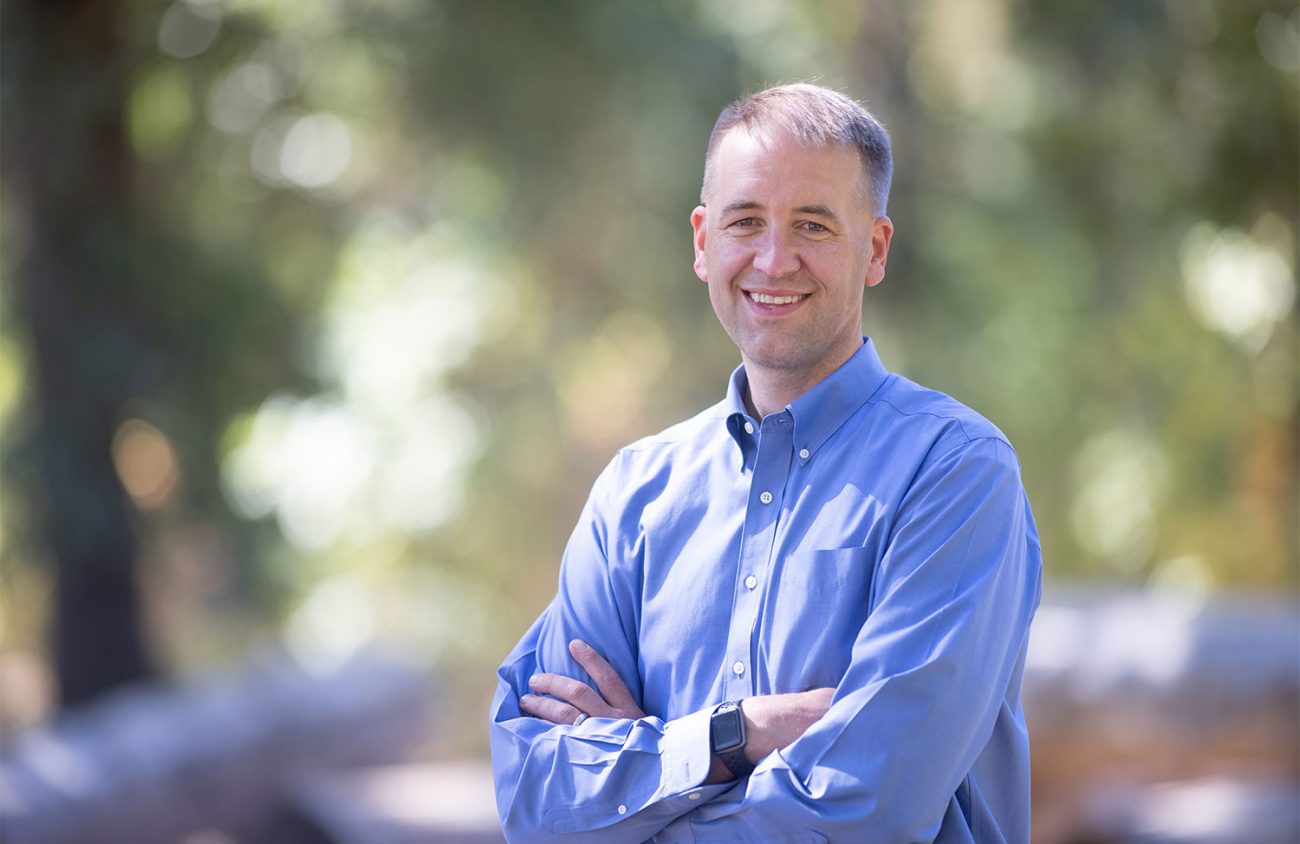When Tobias Read met with Eugene Weekly while seeking re-election for state treasurer in 2020, he called it his dream job. One year later, Read wants to leave in the middle of his second term to become governor of Oregon.
Oregon faces several issues in the near future — from homelessness to affordable housing to climate change. But Read tells EW that, if elected, he wants to address COVID-19 as a disease, the biggest problem standing in the way of investing in the future. Once that’s settled, Read looks at policy like an economist: He’s looking at the long run and looks at the health of the state by how well its children are doing.
“We need steady, strong leadership in Oregon, so we can move beyond the pandemic and start tackling our real challenges in Oregon,” Read says. “And to do that we need to get everybody vaccinated.”
He says the state needs to implement vaccine mandates for businesses, schools and government. And should the FDA approve the Pfizer two-dose vaccine for ages 5 through 12, he adds that the state should require vaccines for every Oregon student. California is the first U.S. state to make such a mandate so far.
“Like we do for eight other vaccines,” he says, referring to vaccinations for hepatitis B, polio and chickenpox. “It’s really personal for me. I’ve got two kids, only one of whom is old enough to be vaccinated, and this is the kind of conversation I have with parents, business owners. We can stop the virus in its tracks if we can get everybody vaccinated.”
The pandemic — and the hesitancy to get vaccinated — stands in the way of Oregon’s progress, Read says. And he’ll measure how well the state is advancing by how well its kids are doing. “We’ve got too many kids going to sleep hungry, too many who are dropping out of school, too many kids who’ve concluded that there aren’t too many opportunities for them in the rural communities where they’ve been raised,” he says. “We’re lurching from crisis to crisis, and we’ve gotta be laying out the vision we have for the future and investing in it.”
Read adds that he envisions the state investing in pre-kindergarten for every Oregon child, apprenticeships and vocational training, as well as progress in clean energy.
After six years as Oregon State Treasurer, Read says he’s familiar with financial markets and could see using that knowledge in policy discussions if elected governor, mentioning that former Gov. Bob Straub was also a treasurer and likely used the state’s “financial heft” to inform policy.
And Read considers financial tools when talking about the housing affordability crisis. Not only should the state look for ways to attract money for building housing units, but there also needs to be a cost reduction associated with the developing process, he says, specifically permits and requirements.
As treasurer, Read says the office issued sustainability bonds to raise money for affordable housing earlier in 2021. Using the financial market, it’s helping fund affordable housing projects, he adds. “I think there are lessons from that,” he says.
Over the years in Oregon, homelessness has emerged as an issue for many cities, including Portland, Eugene and Salem. Read says homelessness is a statewide issue. “The question of homelessness isn’t a single issue,” he says. “It’s a culmination of a lot of other issues that come together.” Read lists mental health, land use and affordable housing as aspects to make up the problem. To address homelessness in the long run, it means grappling with how to build more housing units that meet different needs.
“In the short term, recognizing that people are in a lot of cases dealing with addiction and mental health solutions — that’s what’s at the heart of what is causing the difficulty,” he says. “Yet that’s really hard for someone to address without having a decent place to live.”
Read is the second high-level Democrat to announce his candidacy, following Oregon House Speaker Tina Kotek by a few weeks. On Oct. 14, state Sen. Betsy Johnson, a Democrat, filed to run as an independent and former New York Times columnist Nicholas Kristof created a committee to explore his candidacy.
Since the 2020 general election, Read has raised $172,411 in campaign funds, according to his campaign finance activity as of Oct. 20. The largest contributions are $25,000, one from the Oregon Realtors Political Action Committee and another from Neal Dempsey, managing general partner of the Silicon Valley venture capitalist firm Bay Partners.
An analysis of Read’s contributions shows his contributions range from Portland ($121,333) to New York City ($34,500) and San Francisco ($30,000). The highest number of his contributors (23 out of 90) work as lawyers.
As state treasurer, one of Read’s more popular policies was OregonSaves, the first state-backed IRA retirement program in the U.S. His office also created programs for residents to open a state-sponsored 529 college savings plan and the Oregon ABLE Savings Plan that allows people with disabilities to save money for long-term expenses.
Read says he enjoys serving as state treasurer, but the Governor’s Office needs more long-run thinking. “I can bring the creativity and commitment to progress to the Governor’s Office,” he says. “Investments in our futures, in our kids, in our savings, is really paying off in the long run.”
Read reiterates, though, that Oregon can’t address any of these other issues without first dealing with COVID-19. “Our long-run future is based on having a vision based on the willingness to confront difficult realities, and right now that’s the coronavirus, the barrier to get us on track,” he says. “In the end, we can’t allow people to endanger kids. We’ve gotta get on the path to getting people vaccinated so we can put the pandemic behind us and measure how our kids are doing.”
